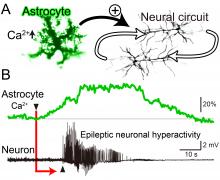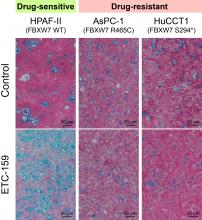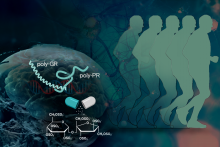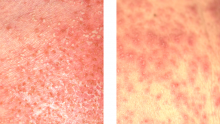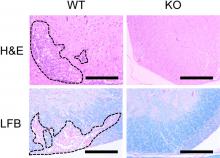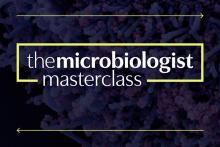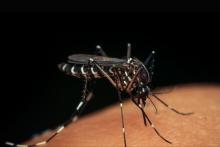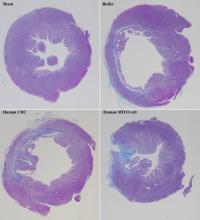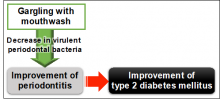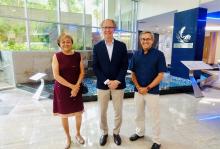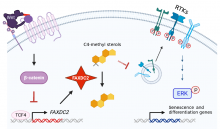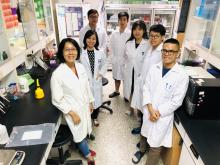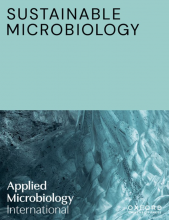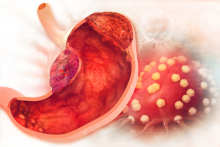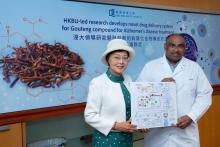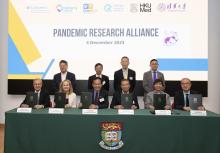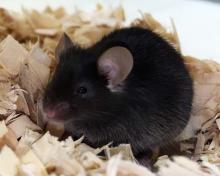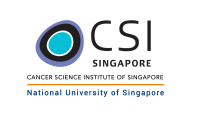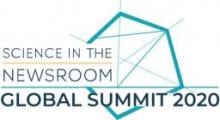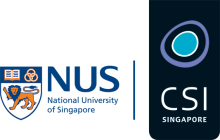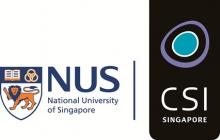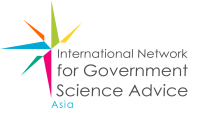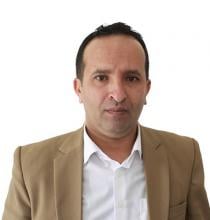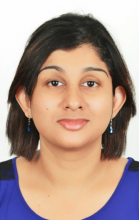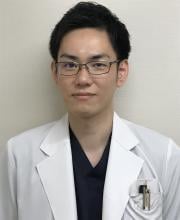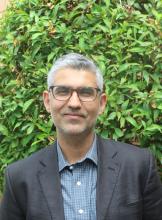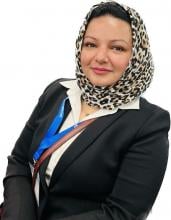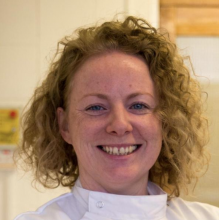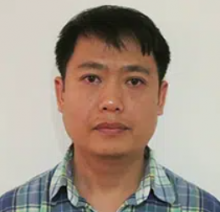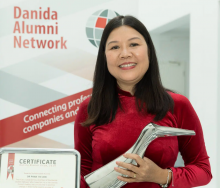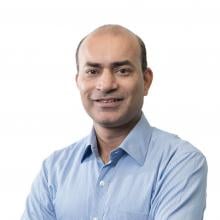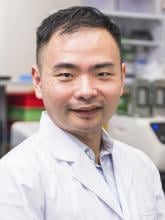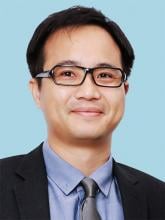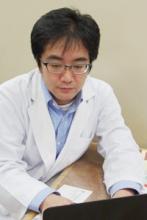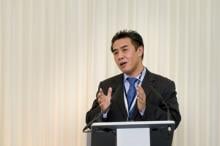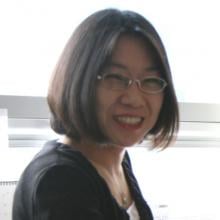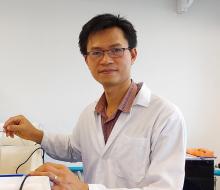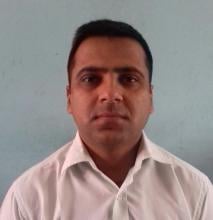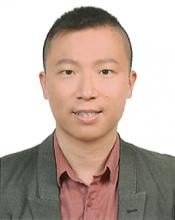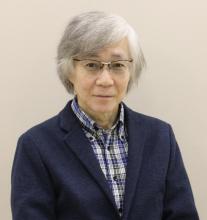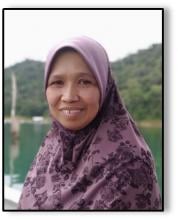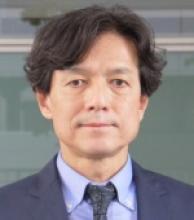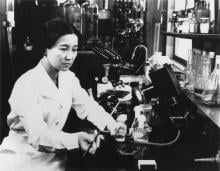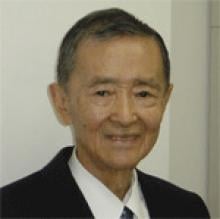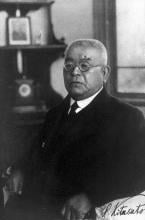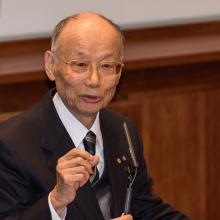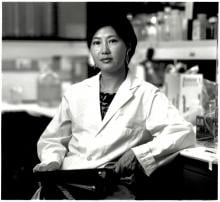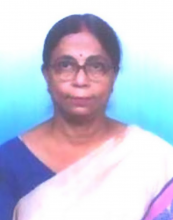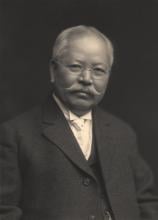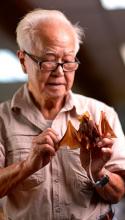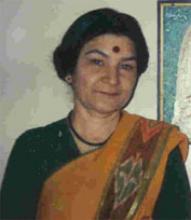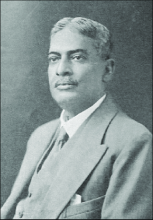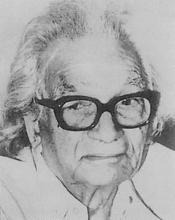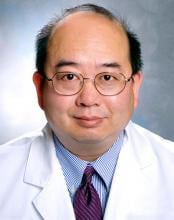Diseases
News
19 Apr 2024
When epileptic patients suffer seizures, their brain is undergoing repetitive and excessive neuronal firing. But what triggers this has stumped scientists for years. Now, researchers have used fluorescence calcium sensors to track astrocytes' role in epileptic seizures, finding that that astrocyte activity starts approximately 20 seconds before the onset of epileptic neuronal hyperactivity.
12 Apr 2024
Zika virus vaccine targets brain cancer, 120-year quest to farm lobsters, Arctic nightlife bursts with sound, Eating a robot, Molecular orientation is key & New treatment for ALS and dementia. Read all in the latest Editor's Choice.
11 Apr 2024
Duke-NUS study reveals why some pancreatic and colorectal tumours resist targeted anti-Wnt drugs and suggests how to overcome it, offering new hope to patients with fully treatment-resistant cancers
21 Mar 2024
Scientists from Duke-NUS Medical School have identified a gene that plays a crucial role in regulating energy supply to cells that drive kidney failure. This discovery concerning the gene, named WWP2, offers a new target for therapies aimed at mitigating kidney scarring and damage.
19 Mar 2024
The 12th Starch Value Chain ASIA conference was held in Vientiane, at Crowne Plaza Hotel, from February 27 to 29, 2024. The conference encompassed four key themes: Asia’s starch markets, industrial and food-grade tapioca starch in Laos with expansion plans, sustainable climate-smart agri-technology for rice and cassava cultivation, and challenges for future growth in Asia's biogas-to-energy sector.
18 Mar 2024
Amyotrophic Lateral Sclerosis (ALS) and Frontotemporal Dementia (FTD) are neurodegenerative diseases that commonly occur in middle-aged people. FTD is second only to Alzheimer's disease in terms of dementia prevalence. Both ALS and FTD arise from neuronal degeneration through mechanisms that remain unclear. Dr. Yun-Ru (Ruby) Chen's team in the Genomics Research Center (GRC), Academia Sinica recently discovered a new pathological mechanism for neuronal degeneration using synthetic peptides. They also discovered that a disaccharide can increase neuronal survival and reduce degeneration. The result provides therapeutic strategies for future treatment of these neurodegenerative diseases. The study was published in the top international journal "Science Advances" on February 23, 2024.
15 Mar 2024
Two rare skin conditions with similar symptoms can be mistaken for each other, so a scoring system has been formulated to aid physicians in distinguishing two diseases
14 Mar 2024
Ancient Mars biomolecules, Gargling away bad bacteria, Molecule glasses magnify life-chemical observations, Cholesterol and cancer link, Quantum electronics leap, Plus our updated Experts for Media: Women list & Asia Research News 2024 is here. Read all in the latest Editor's Choice.
12 Mar 2024
A new study highlights a potential therapeutic target for immune-related disorders, such as multiple sclerosis and asthma.
07 Mar 2024
In celebration of International Women's Day, we are putting the spotlight on women experts from various fields who are open to speaking with international media about their research and advocacies.
28 Feb 2024
A new user-friendly tool helps researchers explore how gene activity is influenced by chemical modifications, providing insights into disease and paths to new treatments.
27 Feb 2024
Applied Microbiology International has announced it will be launching a new series of educational online content called The Microbiologist Masterclass.
26 Feb 2024
MozzHub, a user-friendly dengue hotspot detector, could significantly assist the management and control of dengue.
21 Feb 2024
Regenerative therapy to treat heart failure is more effective when the mitochondria of the regenerative cells are activated prior to treatment.
14 Feb 2024
Researchers from Osaka University have found that gargling with an antiseptic mouthwash can reduce so-called ‘bad’ bacteria in the mouths of patients with type 2 diabetes. Notably, this reduction in bacteria was accompanied by improved blood-sugar control in some patients. Given that the oral diseases caused by these bacteria have been linked to many other serious inflammation-associated diseases, such as cardiovascular disease and Alzheimer’s disease, this simple treatment may have widespread effects.
06 Feb 2024
The estate of the late Ms Diana Koh gifted S$1M to Duke-NUS Medical School and NUS Medicine to fund young cancer researchers and raise awareness about cancer research advances. The gift establishes research funds, grants, prizes, and learning series to support innovative approaches to cancer treatment by the next generation of scientists and clinicians.
02 Feb 2024
Asia Research News monitors the latest research news in Asia. Some highlights that caught our attention this week are how exercising to music can help cognitive function, a material inspired by a mythological creature, and choking cancer cells using calcium.
02 Feb 2024
A study led by Duke-NUS Medical School has found an important connection between cancer, stem cells and the building blocks of cholesterol. Specifically, the research reveals how the enzyme FAXDC2 influences cancer cell growth and differentiation through its role in cholesterol synthesis, suggesting possible new approaches to cancer treatment.
29 Jan 2024
A new technology to increase visibility of cancer cells to the immune system using CRISPR has been developed, and could lead to a new way to treat cancer.
25 Jan 2024
Taiwan: Researchers from National Chung-Hsing University, Taiwan, have made a discovery in the fight against Zika virus. Their study, published in the journal “Communication Biology,” reveals that people who have previously been exposed to dengue virus and Japanese encephalitis virus may have acquired immunity against Zika virus. This finding may shed new light on vaccine strategies in countries where these viruses are common.
24 Jan 2024
This week sees the launch of the first published content in Sustainable Microbiology, the new open access journal which will apply microbiology to sustainability. The journal is published by Applied Microbiology International.
18 Dec 2023
Researchers identify RBFox1 as a key intrinsic regulator of heart muscle cell maturation, overcoming a major limitation in cardiac regenerative therapy and disease modelling and demonstrating for the first time that RNA splicing control can significantly impact this process.
13 Dec 2023
A previously mysterious small RNA molecule in mice is found to play a crucial role in gene expression, and may be the first identified member of a new class of regulatory RNAs.
11 Dec 2023
Scientists uncover genetic factors allowing for the early prediction of intestinal metaplasia patients who may have higher risks of developing stomach cancer, enabling early detection, diagnosis and targeted prevention.
06 Dec 2023
A research team led by Hong Kong Baptist University (HKBU) has developed a novel drug delivery system for Alzheimer’s disease (AD). The researchers have engineered exosomes, extracellular vesicles released by cells, to effectively carry the bioactive compound Corynoxine-B extracted from the Chinese herbal medicine Gouteng to the brain of mice with AD. As Corynoxine-B can induce autophagy, a process that maintains the health of cells, this new drug delivery system using exosomes can improve cognitive function and movement while reducing the symptoms of AD.
05 Dec 2023
World-renowned professors from six leading institutions in four countries launched the Pandemic Research Alliance (PRA) today (4 December) to drive concerted research into respiratory viruses from animals to humans, improved surveillance, and new solutions to better manage the next pandemic.
30 Nov 2023
The report, titled "Pathways for transforming the cancer ecosystem: A patient-centred framework" was compiled from more than 100 interviews with key stakeholders including patients, patient support organisations and other community groups, clinicians, researchers, multiple industries, and healthcare decision-makers.
17 Nov 2023
Analysis of more than 80,000 diabetes patients in Singapore links elevated systolic pressure and very low diastolic pressure to higher cardiovascular mortality. Underscores need to control high systolic levels while exercising caution with low diastolic levels.
16 Nov 2023
The winners of the Applied Microbiology International Horizon Awards were announced at the prestigious Environmental Microbiology lecture 2023, held at BMA House in London on November 16.
14 Nov 2023
Cancer stem cells cause the aging of macrophages in mice with healthy immune systems, creating conditions for the formation of tumors.
Events

13 May 2024
The Symposium will showcase the growing field of early cancer intervention in Asia and will serve as a vital platform for scientists and clinicians to converge and explore the latest advancements in early cancer intervention strategies, spanning from cutting-edge research to community-centric strategies.

07 Aug 2024
The MTE 2024: Advanced Healthcare and Life Sciences International Innovation Awards & Expo (AHLS IIAE) is dedicated to recognizing and celebrating groundbreaking innovations in the healthcare industry.
06 Nov 2023
Bringing together distinguished cancer researchers with complementary knowledge and expertise from across the globe for the exchange of ideas and information.

26 Oct 2023
The Faculty of Medicine Universiti Kebangsaan Malaysia will be organising the 15th Medical Undergraduates' Annual Scientific Research Meeting (MUASRM) on 26th October 2023.
20 Jun 2022
This event, held alongside the COVID-19 International Innovation Awards from 20 to 24 June, will bring forth and showcase innovations that are driving improvements and transforming the healthcare industry.
20 Jun 2022
COVID-19 International Innovation Awards (a virtual event), part of MTE 2022 year-long innovation awards programme, is scheduled to return on 20-24 June 2022. The awards are created to acknowledge and celebrate all innovations in response to COVID-19.
07 Nov 2022
FCS2022 is jointly organized by eight major research institutes in Singapore and includes a line-up of internationally renowned cancer experts. The conference converges the latest cancer discoveries around the world and promises ground-breaking and innovative insights into cancer research.
25 Jan 2022
With a brand-new focus, join us to explore Asia Healthcare Analytics Summit happening LIVE on 25 & 26 January 2022 via Hopin platform with 30+ Inspiring speakers, 100+ Virtual attendees, 4+ Networking session, 3+ Panel discussions of healthcare experts globally participating in this summit.
01 Nov 2021
We invite scientists, doctors, students and other delegates engaging in scientific research related to cancer to join us at Singapore’s preferred cancer conference.
07 Oct 2021
The National Healthcare Group (NHG) is proud to present the 19th Edition of the Singapore Health & Biomedical Congress (SHBC).
23 Nov 2020
Global health emergencies look set to be a part of our lives. What awaits us in 2021 and what lessons can we draw from COVID-19 coverage? How can we support newsrooms and journalists for more informed and impactful journalism about global scientific, technical and human challenges? What role does journalism play in seeking solutions for a better world that is both healthy, and sustainable?
02 Nov 2020
We invite scientists, doctors, students and other delegates engaging in scientific research related to cancer to join us at Singapore’s preferred cancer conference.
01 Oct 2020
The 6th annual RNA Biology Symposium jointly organized by the RNA Biology Centre of CSI Singapore (NUS), Skin Research Institute of Singapore (A*STAR), Duke-NUS Medical School, School of Biological Sciences (NTU) and Singapore-MIT Alliance for Research and Technology (SMART)
The Khwarizmi International Award (KIA) acknowledges the efforts made by researchers, innovators and inventors from across the globe and to appreciate their high quality research work and contributions to different fields of science and technology.
26 Jun 2020
Flattening the Curve with Digital Health: Episode 7 - Australia
18 Jun 2020
Flattening the Curve with Digital Health: Episode 6 - Thailand
10 Jun 2020
Flattening the Curve with Digital Health: Episode 5 - Japan
04 Jun 2020
Flattening the Curve with Digital Health; Episode 4 - Malaysia
21 May 2020
Flattening the Curve with Digial Health - Episode 2: Singapore
28 May 2020
Flattening the Curve with Digital Health: Episode 3 - South Korea
14 May 2020
Flattening the Curve with Digital Health - Episode 1 - China

04 Nov 2019
We bring together distinguished cancer researchers with complementary knowledge and expertise
from across the globe for the exchange of ideas and information.
13 Aug 2019
Call for participation. Deadline: 30 April 2019
09 Sep 2019
This conference brings together a focus on technology development as well as applications for biomarker analysis in cancer, cardiovascular disease and other disease classes.
Researchers
I am a microbiologist currently working as a lecturer in the Medical Microbiology Department, Faculty of Applied Science, Hajjah University, Yemen. I am interested in research areas related to the prevalence of infectious diseases caused by bacteria, viruses, fungi, and parasites in different areas in Yemen.
Universiti Sains Malaysia
Angeli Ambayya is a Scientific Officer (Ministry of Health, Malaysia). She is passionate about research in the field of hemato-oncology.
Prof. Ryo Katsumata specialized in clinical research within gastroenterology, particularly in neurogastroenterology. His focus revolves around understanding the brain-gut interaction and the pathophysiology of disorders like functional dyspepsia (FD) and irritable bowel syndrome (IBS) that involve the gut-brain connection.
Duke-NUS Medical School
Physician-researcher; Primary area of research: Ageing, at the individual and the population level; Geographical focus: Singapore, with some work in other Asian countries.
Institute for the Advanced Study of Human Biology (ASHBi), Kyoto University
Dr Ashfaq Ahmad Shah 'اشفاک ' born on 6 June 1992, from south Kashmir, Doderkoot ددیرکوٹ Kulgam, Jammu and Kashmir, India is the infection immunity doctoral researcher at the Graphic Era (Deemed to be University), Dehradun, UK, India. Dr Shah is pursuing novel dimensions of infection immunity pertaining to the correlation and impact of phyto-immune components termed phytoalexins and phytoanticipins on the benign immune system of human beings. This parameter of immunology is termed phytoalexin-immunomodulation scrutiny. His area of interest lies in Preclinical and clinical studies, i.e. vaccine adjuvant development, development of anti-inflammatory and antimicrobial compounds, evaluation of antibiotic resistance, study of Immuno-modulatory activities, disease model studies, protease isolation against specific protein antigens, and the discipline of Kalology including tyrosinase inhibition, PPO inhibition, skin whitening agents, kerato-peeling etc. Dr Ashfaq is a Doctoral Researcher, Reviewer and Editorial member of several journals and books. He is having several publications in journals of national and international repute. So far he has published more than thirty scopus infection/immunology/pharmacology scientific papers, including Fifteen international book chapters and two international books. Mr Shah received the Young scientist award in August 2023 for his groundbreaking academic performance in the field of infection immunity. Mr Shah has also been an editor of Wikipedia pages in medical science since 2015 with more than 1000 edits in medical topics available to medical literature worldwide.
Universiti Malaysia Sarawak
Dr. Cheng-Siang Tan is an Associate Professor at the Faculty of Medicine and Health Sciences, Universiti Malaysia Sarawak (UNIMAS). He is an expert in infectious and emerging diseases and biosafety and biorisk management.
Dr. Hira Khalid is serving as Associate Professor at Forman Christian College University, Lahore, Pakistan. She is also a US Fulbright Fellow and a member of several prestigious scientific organizations, including the American Chemical Society (ACS), the Royal Society of Chemistry (RSC), the International Union of Pure and Applied Chemistry (IUPAC), the Organization for Women in Science for the Developing World (OWSD), and the Chemical Society of Pakistan (CSP).
Dr. Crumlish has researched aquatic microbial diseases, specifically ones that have economic impact in global aquaculture, and potential solutions to such infectious diseases. Her current project seeks to develop vaccines against antimicrobial resistance in aquaculture.
The Agency for Science, Technology and Research (A*STAR)
Dr. Tay has researched antibodies and diseases like malaria and SARS-CoV-2 at A*STAR. His focus is on discovering methods for developing antibodies that can be used in therapies against multidrug-resistant pathogens.
Nguyen Huu Nghia is the Director of the Center for Environment and Disease Monitoring in Aquaculture (CEDMA) at the Research Institute for Aquaculture No.1 (RIA1) under Vietnam’s Ministry of Agriculture and Rural Development. He has co-managed various research efforts in Vietnam aquaculture as well as published recent research into the use of nanobubbles.
Dr. Van was previously the Director of the Research Institute for Aquaculture No.1 (RIA1) under Vietnam’s Ministry of Agriculture and Rural Development. She has extensive expertise in aquatic animal health and aquaculture safety management.
City University of Hong Kong (CityU)
Professor St-Hilaire is associate head and professor at the Department of Infectious Diseases and Public Health, City University of Hong Kong (CityU). She has extensively researched fish nutrition and diseases, including treatment efficacy, and has helped investigate fish disease outbreaks.
The Agency for Science, Technology and Research (A*STAR)
Dr. Oehlers leads the Bacterial Pathogenesis Laboratory at A*STAR ID Labs, where he and his colleagues focus on identifying molecular bases of mycobacterial disease and, thus, deploy therapies that address antibiotic resistance in mycobacterial infections.
The Agency for Science, Technology and Research (A*STAR)
Dr. Yue Wang is senior principal investigator at the Antifungal Resistance Laboratory of A*STAR ID Labs, where his body of work focuses on virulence mechanisms of the fungal human pathogen Candida albicans.
The Agency for Science, Technology and Research (A*STAR)
Dr. Singhal serves as senior principal investigator at the Bacterial Immunopathology Lab at A*STAR ID Labs in Singapore. His work at A*STAR ID Labs revolves around three main pathogens: Mycobacterium tuberculosis, Gram-negative bacteria and Dengue virus.
The Agency for Science, Technology and Research (A*STAR)
Dr. Bifani is a principal investigator at A*STAR ID Labs at their Antimicrobial Resistance Lab. He has extensively researched antimicrobial resistance in tuberculosis and malaria. He is also an associate professor and research director at the Yong Yoo Lin School of Medicine, National University of Singapore.
City University of Hong Kong (CityU)
Dr. Yan is an assistant professor at the Department of Biomedical Sciences, City University of Hong Kong (CityU). His current research focuses on developing genomic tools to dissect lncRNA function and mechanism in diseases and to identify genetic variations that contribute to disease pathogenesis.
City University of Hong Kong (CityU)
Dr. Deng is a biomedical scientist with a special interest in bacterial virulence, including gene regulation, signaling pathways, and RNA epigenetics. He has worked on virulence regulation in pathogens to discover new therapies against bacterial infections.
Osaka Metropolitan University
Dr. Ozawa is a Specially Appointed Professor at the Department of Dermatology, Graduate School of Medicine, Osaka Metropolitan University (formerly Osaka City University). His specialized field is skin malignant tumor and surgery.
Kyoto University
Dr. So Iwata is a Professor at the Graduate School of Medicine Kyoto University and the Group Director of the SACLA Science Research Group, RIKEN SPring-8 Center. He has investigated how specialized membrane channels remove antimicrobial drugs from inside bacterial cells.
Ulsan National Institute of Science and Technology (UNIST)
Dr. Mitchell is a professor at the Department of Biological Sciences, Ulsan National Institute of Science and Technology (UNIST). His primary research interest is the study of bacterial strains that attack and prey on other bacteria, including antimicrobial-resistant pathogens.
Dr. Soojin Jang heads the Antibacterial Resistance Research Laboratory at Institut Pasteur Korea, where her team focuses on discovering new antibacterial agents for “superbugs” or bacteria resistant to most antibiotics.
Hong Kong Baptist University (HKBU)
Prof. Cai Zongwei is now the Chair Professor of Chemistry in the Department of Chemistry and Director of both State Key Laboratory of Environmental and Biological Analysis as well as Dioxin Laboratory, Hong Kong Baptist University.
The Asian Institute of Technology
Dr. Dong currently works at the Asian Institute of Technology. He does research in Aquaculture, Pathology, Infectious Diseases, and Aquatic Bioscience.
Suraj Bhattarai is a global health specialist and tropical medicine physician with research interests in infectious disease epidemiology and surveillance, health systems, and urban health. He is a co-founder and research fellow at the Global Institute for Interdisciplinary Studies, a Kathmandu-based academic institute that promotes and conducts interdisciplinary research. He is a member of Global Young Academy and an Alumni steering committee member of IAP-Young Physician Leaders Programme. He obtained medical training in Nepal and masters in Tropical Medicine & International Health from the LSHTM, UK.
I am a Health Economist/Researcher, working with UN agencies in the development of policy documents for developing countries including Nepal, Ethiopia and Pakistan.
City University of Hong Kong (CityU)
Dr Brian Kot is a registered diagnostic radiographer and veterinary imaging researcher in the City University of Hong Kong.
Osaka City University
Takashi Hashimoto's major expertise is clinical and basic research for both autoimmune bullous diseases and hereditary skin diseases.
Universiti Teknologi MARA (UiTM)
Department of Microbiology / Biomolecular Sciences
Universiti Teknologi MARA
Malaysia
Osaka City University
Akira Kaneko was appointed as Professor of Parasitology of Osaka City University in 2010. Since then, he has conducted global health research with a particular focus on malaria elimination on islands in Vanuatu, Oceania and Lake Victoria, Kenya.
Giants in history
Ruby Sakae Hirose (1904 – 1960) was a Japanese-American scientist whose research contributed significantly to our understanding of blood clotting, allergies and cancer.
Iranian physician and bacteriologist Azar Andami (8 December 1926 – 19 August 1984) developed a cholera vaccine to combat an outbreak that swept through the Middle East, India, Southeast Asia, and Africa in 1937.
Michiaki Takahashi (17 February 1928 – 16 December 2013) was a Japanese virologist who developed the first chickenpox vaccine.
Irene Ayako Uchida’s (8 April 1917 – 30 July 2013) strides to understand genetic diseases such as Down syndrome paved the way for early screening of chromosomal abnormalities in foetuses.
Baron Kitasato Shibasaburo (29 January 1856 – 13 June 1931) was a Japanese physician and bacteriologist whose work led to a new understanding of preventing and treating tetanus, diphtheria and anthrax.
By isolating soil microorganisms and studying the compounds they produce, Satoshi Omura (born 1935) discovered almost 500 organic compounds with unique properties that were produced by these microorganisms, including many new antibiotics.
Chinese-American virologist and molecular biologist Flossie Wong-Staal (27 August 1946 – 8 July 2020) was the first scientist to clone HIV and determine the function of its genes.
Maharani Chakravorty (1937 – 2015) was one of India’s earliest molecular biologists whose research paved the way for advances in the treatment of bacterial and viral infections.
Husband and wife team, Kimishige (3 December 1925 – 6 July 2018) and Teruko Ishizaka (28 September 1926 – 4 June 2019) discovered the antibody class Immunoglobulin E (IgE) that triggers allergic reactions. They also discovered that IgE antibodies attach to white blood cells, known as mast cells, releasing histamine, which causes allergic reactions.
Japanese chemist Takamine Jokichi (3 November 1854 – 22 July 1922) founded the Tokyo Artificial Fertilizer Company, where he isolated a starch-digesting enzyme (named takadiastase) from the fungus Aspergillus oryzae.
Lim Boo Liat (21 August 1926 – 11 July 2020), a leading authority in the conservation of Malaysia’s biological diversity, had his initial interest in the outdoors piqued by nature lessons in school. Lim, who helped found the National Zoo of Malaysia and re-establish the Malaysian Nature Society, had a particular interest in researching zoonotic diseases associated with small animals.
A pioneer of bio-organic chemistry, Darshan Ranganathan (4 June 1941 – 4 June 2001) is remembered for developing a protocol for synthesising imidazole, a compound used to make antifungal drugs and antibiotics. Widely considered India’s most prolific researcher in chemistry, she also published dozens of papers in renowned journals on protein folding, molecular design, chemical simulation of key biological processes, and the synthesis of functional hybrid peptides and nanotubes.
Indian scientist and physician Upendranath Brahmachari (19 December 1873–6 February 1946) is best known for creating a drug called Urea Stibamine, used to safely and reliably treat visceral leishmaniasis (or Kala-azar), a severe infection caused by the Leishmania parasite.
Filipino chemist and pharmacist Manuel A. Zamora (29 March 1870 – 9 July 1929) is best remembered for his discovery of the tiki-tiki formula to combat beriberi, a disease caused by Vitamin B1 deficiency.
Indian organic chemist Asima Chatterjee (1917 to 2006) studied the medicinal properties of plant products, especially compounds known as vinca alkaloids.
Umetaro Suzuki (7 April 1874 – 20 September 1943) was a Japanese scientist best remembered for his research on beriberi, a disease caused by vitamin B1 deficiency, characterized by limb stiffness, paralysis and pain.
Salimuzzaman Siddiqui (19 October 1897 – 14 April 1994) was an artist and chemist from Pakistan whose research focused on natural products from plants.
Barry Paw (29 August 1962 – 28 December 2017) was a biologist and oncologist who discovered several novel genes and their functions in red blood cells.


